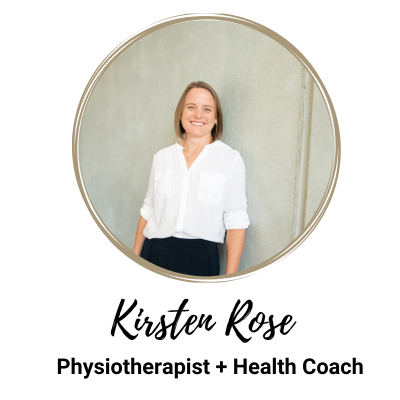
What does “health” mean to you? Would you consider yourself “healthy”?
The World Health Organisation defines Health as
“a state of complete physical, mental and social well-being
and not merely the absence of disease or infirmity.”
I don’t know about you, but I think modern society has lost its grip on that definition, even though there seems to be such a swell of interest in the topic of longevity when it comes to research and media. I certainly speak to many people who would describe their general health as “good” despite the fact that they take multiple regular medications for various health conditions. The reality is that if you’re an “average” adult in the developed world the chance that you are “healthy” according to that definition is low.
World Health Statistics in 2023 show that humans are chronically unwell with the four major chronic diseases (cardiovascular, cancer, chronic respiratory and diabetes) being responsible for 74% of global deaths in 2019. What’s more concerning is the disease burden that these conditions have on individuals whilst they are still alive. In New Zealand, the picture isn’t any prettier with one in four New Zealanders living with multiple chronic health conditions that are often experienced by several generations in the same whānau.
Modern medicine has had a profound effect on helping people to have a longer lifespan but what about our healthspan? Many might agree that “healthspan” can be defined as the period of one’s life that one is healthy. However, like I said moments ago, being “healthy” means different things to different people.
Lifespan is the number of years someone lives from birth until death, while healthspan is the number of years someone is healthy without chronic and debilitating disease, or some describe it as, “the maintenance of full function as nearly as possible to the end of life.” The image below depicts the average lifespan vs healthspan of an adult in the USA today. What do you notice?
According to this graph and other worldwide research we can live for one to two decades or 20% of our lives unhealthy (Mikhail, 2023). Needless to say, that is a long time.
I’m sure we can all agree that ageing is an inevitable fact of life, we know that as time passes most people grow and decline in predictable ways. But we don’t all age at the same rate, some people will die in their 50s or 60s whilst others will live well into their 90’s. We know that certain factors help people to live and stay in better health for longer.
Our metabolic health plays a large role in this answer. We have a set of cellular mechanisms that generate energy from our food and environment to power every cell in our body. When things are running smoothly, we have optimal health but when they don’t, conditions for disease set in. When we enhance our metabolic health, we not only live longer, we live healthier.
So how do you know if you’re metabolically healthy? Metabolic health is defined by optimal levels of five markers (without medication use):
If you have regular blood tests you might find these measures on your results and some of them you can measure yourself. Ideally you would be looking for:
Ready for another confronting stat? 93% of American adults have sub-optimal metabolic health, as measured by similar markers. About one in three American adults has at least three of these markers out of range, a condition known as metabolic syndrome. We’d be looking at similar rates in New Zealand too. Downright scary!
The great news is that metabolic health is largely under your control, as metabolic dysfunction is compounded by poor nutrition, too little exercise, chronic sleep loss and stress. All of which are things we can change and therefore we have the ability to improve and in some cases reverse metabolic dysfunction.
So what do those changes look like? What would you need to do to improve your metabolic health? It’s not rocket science, we’re always coming back to the basics:
Now whilst that might sound simple, I know from experience that it’s far from easy for people to change their lifestyle habits. We all have our own life situations, experiences, emotions and thought processes that can either help or hinder us when we’re trying to make change. Plus we live in a world that makes “a healthy” choice often more difficult to make than an “unhealthy” choice.
There’s a range of healthcare providers that could support you to change your health, depending on your needs and ultimately it’s up to you who you would like to work with. If you’re feeling a bit stuck, can I suggest giving Health Coaching a try?
Lengthening healthspan starts with thinking about aging well holistically, where we stop separating out our different health issues from each other and instead prioritise physical health, mental health, and daily lifestyle factors all in one. As a Health Coach it’s my role to provide clarity, inspiration and the latest science and evidence in lifestyle medicine to improve the overall health of an individual. Most importantly, I walk alongside someone to help them with long-term, sustainable behaviour change.
If you’re interested in how I could help you with your health goals book a complimentary call with myself HERE.

References
Mikhail, A. (2023, April 15). What is healthspan vs lifespan and how to lengthen it. Fortune. Retrieved March 21, 2024, from https://fortune.com/well/2023/04/15/healthspan-may-be-more-integral-to-your-well-being-than-lifespan-how-to-lengthen-it/World health statistics 2023 – Monitoring health for the SDGs. (2023, May 11). World Health Organization (WHO). Retrieved March 21, 2024, from https://cdn.who.int/media/docs/default-source/gho-documents/world-health-statistic-reports/2023/world-health-statistics-2023_20230519_.pdf
Recent Comments